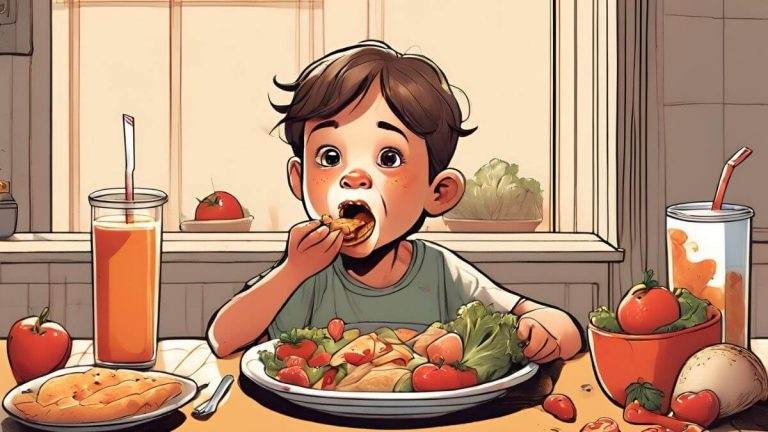Fueling Focus: How Diet Impacts Your Child’s Concentration


Ever wondered why your child seems fidgety and forgetful after a sugary breakfast? Or how afternoon crashes lead to meltdowns instead of focused homework time? A child’s diet plays a crucial role in their ability to concentrate and learn. Let’s explore the science behind poor diet and child concentration, and discover how nutrition for kids can be optimized to support brain development and diet.
The gut microbiome, the community of microorganisms living in our digestive system, is increasingly recognized for its influence on brain function. A balanced gut microbiome promotes the production of beneficial neurotransmitters, like dopamine and serotonin, which are essential for focus, mood, and learning. Conversely, a diet high in processed foods, sugary drinks, and unhealthy fats can disrupt the gut microbiome, leading to inflammation and a decrease in these crucial neurotransmitters. This can manifest as difficulty concentrating, irritability, and even fatigue.
Sugary cereals, pastries, and processed snacks cause blood sugar levels to spike rapidly. This initial surge is followed by a sharp drop, leading to feelings of sluggishness and difficulty concentrating. This “blood sugar roller coaster” can disrupt a child’s ability to focus throughout the day and hinder their learning potential.
So, what should you include in your child’s diet to promote focus and brain development? Here are some key nutrients and the foods rich in them:
Making healthy lunch choices can be challenging, but it sets your child up for a successful afternoon. Here are some tips for packing lunches that promote concentration:
Related Reading: Encouraging Healthy Eating
Remember
By understanding the link between nutrition for kids and brain development and diet, you can empower your child to reach their full potential. By incorporating these tips and focusing on a balanced diet rich in brain-boosting nutrients, you can help your child stay focused, energized, and ready to learn!
Also Read: The Impact of Breakfast
Reference:

Get Your Resources to Your Email Now!